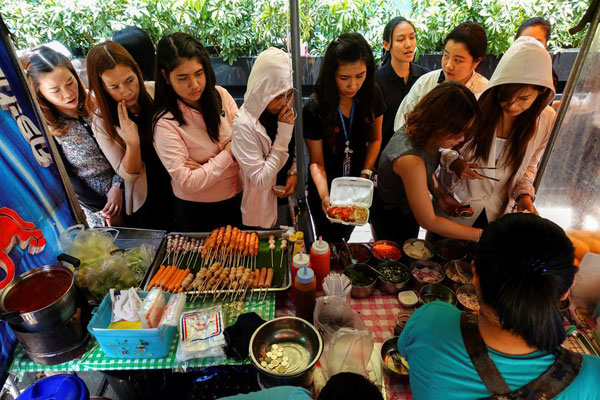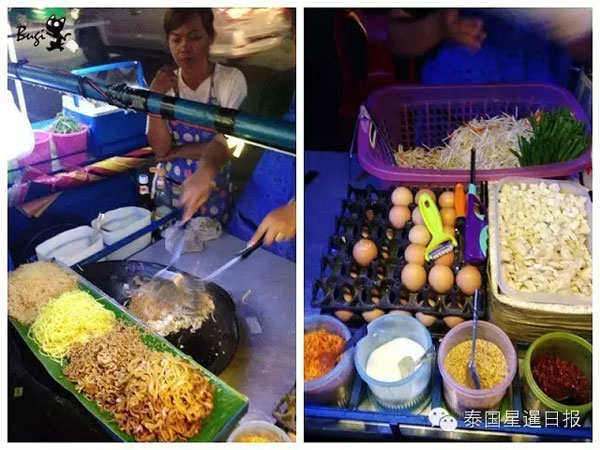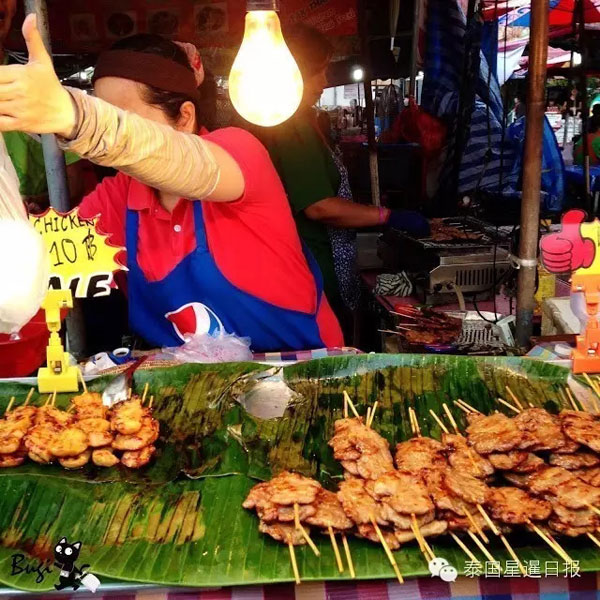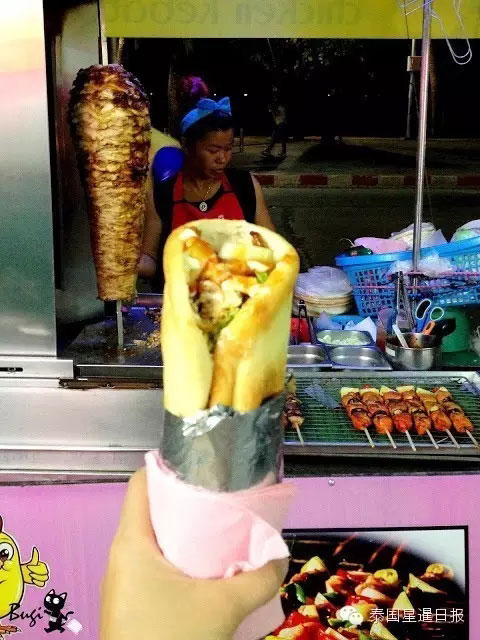|
街边小吃是曼谷文化的一大组成部分,吸引了众多游客,但曼谷市政府表示,将在年内全面禁止商贩在街道设立路边摊,以维护城市秩序和卫生。以后,是不是就喝不到便宜美味的冬阴功汤了?
People queue to buy their lunch at a street food shop in Bangkok, Thailand April 20, 2017. REUTERS/Athit Perawongmetha
Authorities in Bangkok have banned street food from the capital’s major roads, causing an outcry in a city famous for its affordable roadside cuisine. In a move criticised by locals and culinary enthusiasts, thousands of vendors selling dishes such as spicy prawn soup and papaya salad will disappear by the end of the year in the interests of “order and hygiene”, according to city hall. Wanlop Suwandee, chief adviser to Bangkok’s governor, said officials are “now working to get rid of stalls from all 50 districts of Bangkok” and return the pavements to pedestrians. “There will be no let-up in this operation. Every street vendor will have to move out,” he said in comments reported by the local news portal. For decades Bangkok, the most visited city in the world, has promoted itself as a key destination for the food-obsessed. Locals and foreigners dine on plastic chairs at folding tables, slurping steaming noodles at street food eateries that stay open until dawn. Roadsides clog up daily as workers rush to buy pineapple slices, fried chicken or sweet pork kebabs. Tourism, which makes up an estimated 15% of the economy, is buoyed by hundreds of street food tours through the subtropical city. For the second year running, CNN this month named Bangkok as the city with the best street food on the planet. However, since seizing power in 2014, Thailand’s junta has led a campaign to “clean up” and “return happiness” to the country, focusing on issues such as late night drinking, corruption and the sex trade. Chawadee Nualkhair, a Bangkok-based street food blogger, said authorities’ previous attempts to remove stalls had failed. “Street food was still too popular with the locals,” she said. “Of course, it would make Bangkok less charming. But it also takes a big chunk of cheap options away from working Thais, and closes up an avenue of work for many. Where will shop employees, construction workers and taxi drivers eat?” “街头小吃还是太受当地民众的欢迎了,” Some of the city’s most acclaimed street food hotspots have been dismantled by developers who have bought land and evicted vendors. Last year, the renowned Soi Sukhumvit 38 food market, which had operated for nearly 40 years, was destroyed to make way for a high-priced condominium. Some of the vendors selling pad thai and mango sticky rice were allowed to set up in the basement of a nearby building. Others selling egg noodles with BBQ pork and crab still squat in the area. City hall says the central district of Siam has been cleared by police and that Chinatown’s Yaowarat Road and the backpacker haunt, the Khao San Road, made famous in the novel The Beach, are next on the list. Along the busy streets of Thong Lor and Ekkamai, notices were warning vendors that the deadline to leave the area was 1 June. But it was brought forward to 16 April, after the traditional New Year holiday. Along Thong Lor on Tuesday, almost all the street vendors had left. Next to the spot where a popular chicken broth stall was based, a new sign says permits to trade have been revoked. One vendor, a 61-year-old woman selling coconut and pumpkin sweets, said she was allowed to remain as she rented space in front of a pharmacy for about £5 a day, rather than using public space. “There is nothing I can do,” said the woman, who called herself Aunty Tao and said she had worked there for three decades. She added that for years, law enforcement had often confiscated equipment from unlicensed vendors and fined them up to £35. There has been confusion about how the policy will be implemented. The area’s district chief, Boontham Huiprasert, said push-cart vendors who could move around would still be tolerated but larger semi-permanent stalls with seating would have to go. “Or if they can find a place to set up their shop without obstructing the sidewalk, such as behind the railing of the Thong Lor police station or some other private building, that would be OK too,” he said. 泰国各地的美食多不胜数,最重要的是价格亲民又好吃!希望大家到泰国一个都不要放过呀!
泰式炒面 泰式炒面(Pad Thai)每份价钱约40至60泰铢不等,通常有三、四种面可选择,包瓜米粉、泡面、油面、宽面等,配料多有鸡肉丁、鸡蛋、豆芽菜、韭菜等,顾客也可选择要不要加辣,或是要不要洒上花生粉。 和着鸡蛋和豆芽菜与花生一起翻炒的面,加上酱油增加咸味与香气,洒上些许砂糖,吃起来咸中带甜。
各式烤肉串 烤肉串的摊子也很常见,通常一串10泰铢左右,有鸡肉、猪肉等口味,就像台湾夜市里那种一律10元的烤物摊;不同的是,这泰式烤肉串通常会被摆放在香蕉叶上贩卖,口感比较甜,肉腌渍的很入味,也比较油一点。
泰式沙威玛(Chicken Kabab) 泰国的沙威玛通常是以饼皮裹住鸡肉、菠萝、栉瓜、生菜、西红柿与洋葱,淋上适量特调酱、美乃滋与西红柿酱,有浓浓的烤鸡香,大口咬下好满足,口感与味道相当多层次,有淡有咸、清爽不油腻,厚厚的饼皮带着韧性。一个价钱约40至60泰铢左右,份量颇大,女生大概吃一个就饱了!
泰式奶茶 都冠上「泰式」两个字了,怎么可以不喝呢!泰式奶茶以橘黄色泽著名,有着浓浓的特殊茶香与茶味,加入泰国奶粉与糖浆后甜甜的超级好喝。此外,放入大量冰块才是王道喔,因为如果不放入大量冰块,要求少冰的话会太甜。
香蕉煎饼 以特殊饼皮包裹着香蕉,煎至两面微微焦化且脆,乘盘后再淋上香浓的炼乳或巧克力酱,一盘美味的香蕉煎饼就出现了! 一口咬下可以感受到饼皮带有咬劲的爽脆度,香甜的炼乳酱和里头有点微酸的香蕉完美融合,好吃!通常香蕉煎饼价钱约30泰铢左右。 (责任编辑:) |





